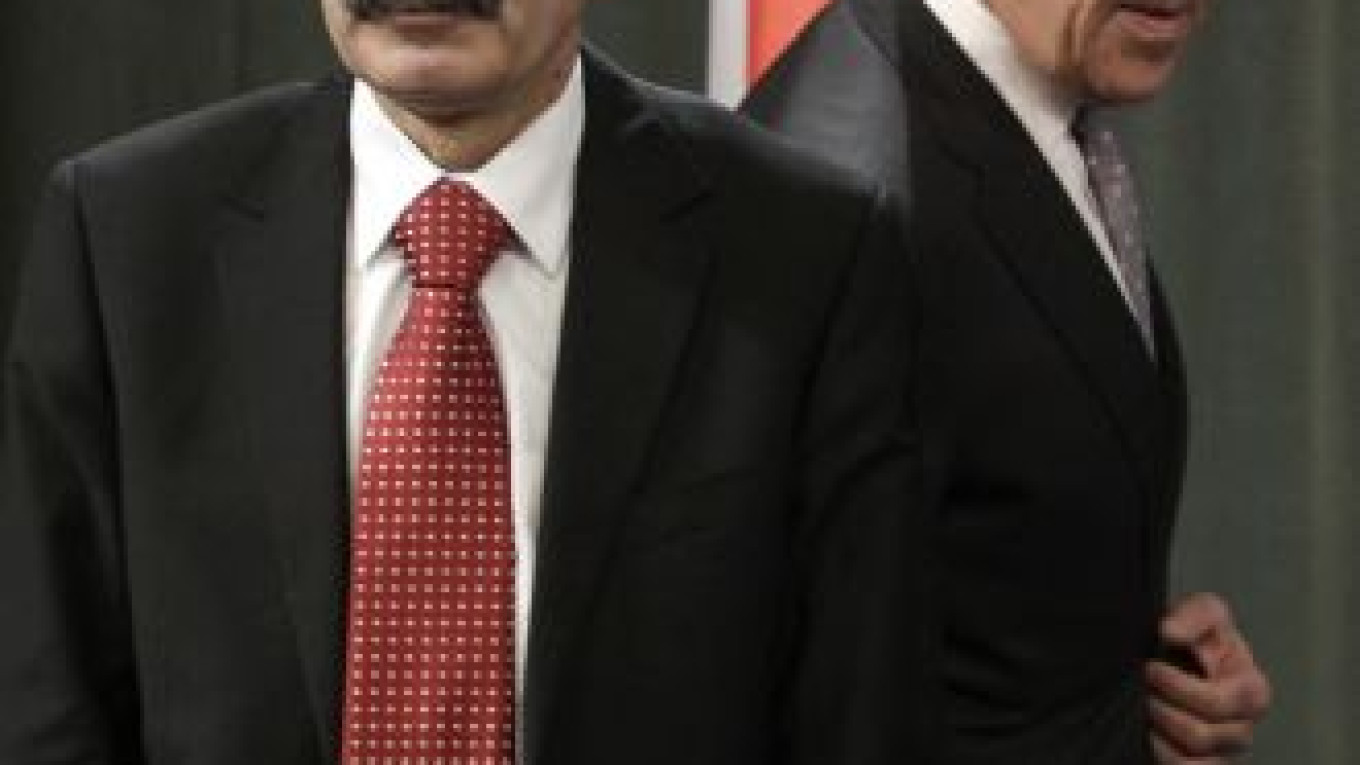Russia and Georgia's breakaway province of South Ossetia agreed to visa-free travel Monday, provoking outrage from Georgia.
Foreign Minister Sergei Lavrov and his South Ossetian counterpart, Murat Dzhioyev, signed the deal in Moscow as part of a bilateral friendship and cooperation agreement signed in September 2008, South Ossetia's representative office in Moscow said in a statement.
Georgian Deputy Foreign Minister Nino Kalandadze said the treaty contradicted international laws. She also called it a "cynical step," accusing Russia of forcing South Ossetians to obtain Russian passports in recent years, Gazeta.ru reported.
Lavrov told reporters that Russia would seek the representation of South Ossetia and Georgia's other breakaway province of Abkhazia in the United Nations, the Organization for Security and Cooperation in Europe and the Council of Europe, Interfax reported.
Moscow recognized the independence of South Ossetia and Abkhazia, where most residents hold Russian passports, after a brief war with Georgia in August 2008. Only a handful of other countries recognize the two regions as sovereign countries.
Georgians are required to obtain visas to visit Russia, a requirement that went into force amid deteriorating relations between Tbilisi and Moscow after the election of President Mikheil Saakashvili in 2003.
A Message from The Moscow Times:
Dear readers,
We are facing unprecedented challenges. Russia's Prosecutor General's Office has designated The Moscow Times as an "undesirable" organization, criminalizing our work and putting our staff at risk of prosecution. This follows our earlier unjust labeling as a "foreign agent."
These actions are direct attempts to silence independent journalism in Russia. The authorities claim our work "discredits the decisions of the Russian leadership." We see things differently: we strive to provide accurate, unbiased reporting on Russia.
We, the journalists of The Moscow Times, refuse to be silenced. But to continue our work, we need your help.
Your support, no matter how small, makes a world of difference. If you can, please support us monthly starting from just $2. It's quick to set up, and every contribution makes a significant impact.
By supporting The Moscow Times, you're defending open, independent journalism in the face of repression. Thank you for standing with us.
Remind me later.


